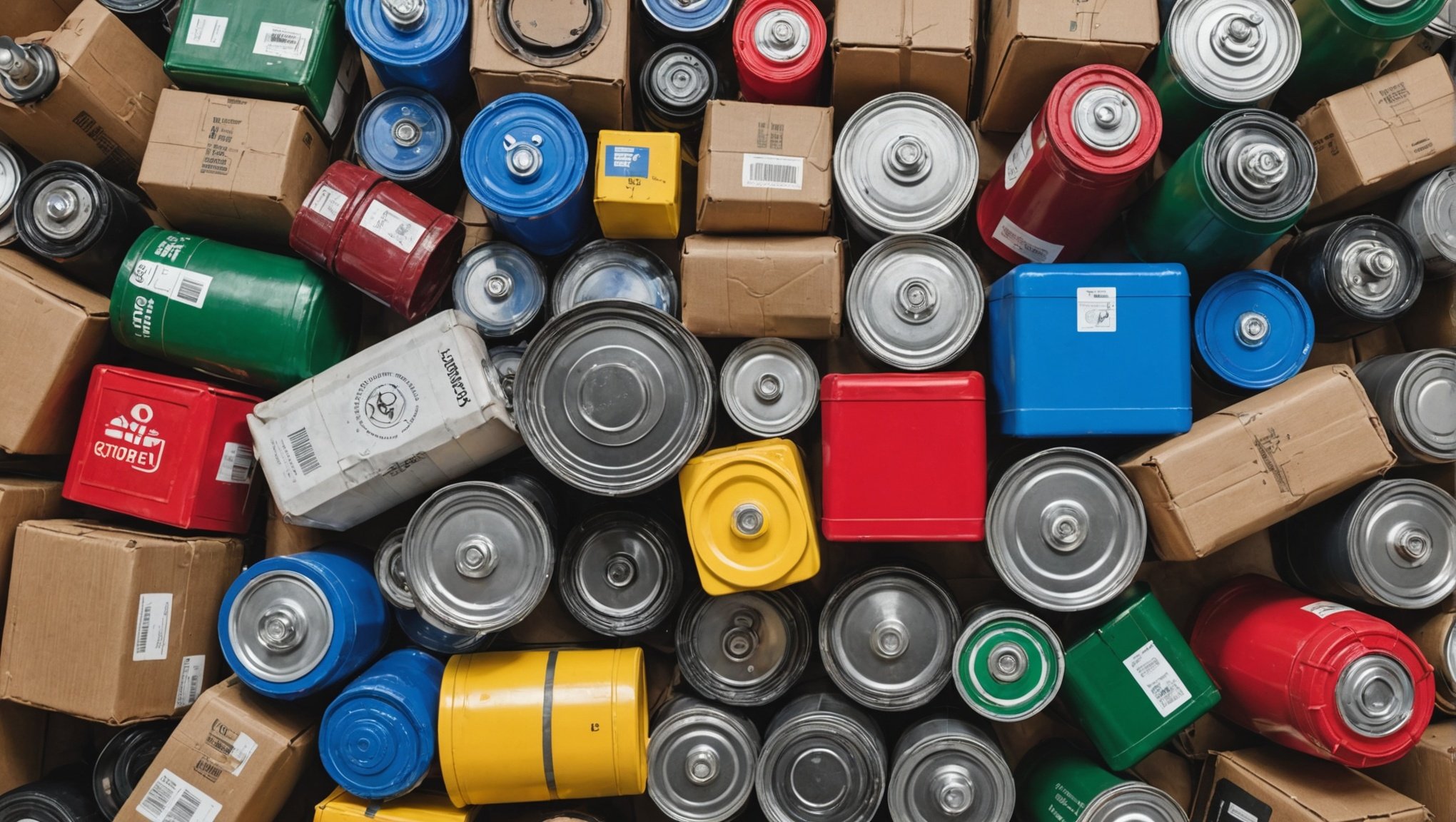Mastering UK Packaging Waste Regulations: A Comprehensive Guide for Emerging Consumer Goods Brands
As the world shifts towards a more sustainable future, the UK has introduced significant changes in its packaging waste regulations, particularly through the implementation of Extended Producer Responsibility (EPR) for packaging. For emerging consumer goods brands, understanding and complying with these regulations is crucial to avoid penalties, enhance sustainability, and maintain a positive brand image. Here’s a detailed guide to help you navigate these new rules.
Understanding Extended Producer Responsibility (EPR) for Packaging
EPR for packaging is an extension of the current Producer Responsibility Regulations, aiming to make producers more accountable for the waste generated by their packaging. This new system is designed to transform the way packaging waste is managed, moving away from the shared producer responsibility approach to a more individualized and comprehensive framework.
Topic to read : Mastering UK Intellectual Property Laws: A Comprehensive Guide for New Publishers
Who is Affected?
To determine if your business is affected, you need to check two key criteria:
- Annual Turnover: Your business must have an annual turnover of £1 million or more.
- Packaging Volume: You must handle more than 25 tonnes of packaging in a calendar year.
Here’s a breakdown of the different categories of organizations and their obligations:
Also to see : Mastering UK Import Regulations: A Guide for Launching Your Gourmet Food Business
| Organization Type | Annual Turnover | Packaging Volume | Obligations |
|---|---|---|---|
| Small Organization | £1 million – £2 million | 25-50 tonnes | Report packaging data annually, no financial contribution to recycling/disposal costs |
| Large Organization | £2 million+ | More than 50 tonnes | Report packaging data, buy PRNs/PERNs, pay waste management fees, and registration charges |
What You Need to Do
Depending on whether you are classified as a small or large organization, here are the steps you need to take:
For Small Organizations:
- Record and report packaging data for 2024 by 1 April 2025.
- Register your business through the RPD portal.
- Submit data on packaging activity, type, class, material, and weight.
For Large Organizations:
- Record and report detailed packaging data, including nation data.
- Create an account for your organization.
- Buy Packaging Waste Recycling Notes (PRNs) or Packaging Waste Export Recycling Notes (PERNs) to meet recycling obligations.
- Pay waste management fees, scheme administrator costs, and registration charges to the environmental regulator.
Collecting and Reporting Your Packaging Data
Accurate data collection is the cornerstone of compliance with EPR regulations. Here’s what you need to collect and report:
Data Categories
- Packaging Activity: How you supplied the packaging (e.g., under your brand, packing or filling, importing).
- Packaging Type: Whether the packaging is household or non-household.
- Packaging Class: Primary, secondary, shipment, or tertiary packaging.
- Packaging Material and Weight: Detailed information on the materials used and the weight of the packaging.
Reporting Deadlines
- For large organizations, data must be reported in two batches: January to June 2024 by 1 October 2024, and July to December 2024 by 1 April 2025.
- For small organizations, the entire year’s data must be reported by 1 April 2025.
The Impact of EPR on Your Business
The introduction of EPR for packaging brings several significant changes that will impact your business operations and sustainability goals.
New Compliance Requirements
- Single Point of Compliance: EPR introduces a single point of compliance for packaging, simplifying the reporting process but also making it more stringent.
- Separation of Household and Non-Household Packaging: Household packaging will be managed by a Scheme Administrator, while non-household packaging will be handled through Packaging Compliance Schemes.
Financial Implications
- Waste Management Fees: Large organizations will need to pay fees based on their packaging data, which will be used to cover the costs of waste management.
- Scheme Administrator Costs: Additional costs will be incurred for the administration of the new system.
Mandatory Labelling
- From 1 April 2027, all packaging must be labelled with the “Recycle Now” mark, indicating whether the packaging can be recycled or not. This includes soft, flexible plastics.
Sustainability and Environmental Impact
The EPR regulations are designed to enhance sustainability and reduce the environmental impact of packaging waste.
Reducing Waste
- The goal is to significantly reduce the amount of packaging waste that ends up in landfills by promoting recycling and proper waste management.
- Producers are incentivized to design more sustainable packaging solutions, reducing the overall environmental footprint of their products.
Circular Economy
- EPR aligns with the principles of a circular economy, where resources are kept in use for as long as possible, and waste is minimized.
- By making producers responsible for the waste generated by their packaging, the system encourages the use of recyclable materials and the reduction of single-use plastics.
Practical Insights and Actionable Advice
Here are some practical tips to help you comply with the new regulations and enhance your sustainability efforts:
Streamline Your Supply Chain
- Work closely with your suppliers to ensure that all packaging materials are accurately reported and compliant with the new regulations.
- Consider contract packing services that can help manage and report packaging data efficiently.
Design Sustainable Packaging
- Invest in packaging design that uses recyclable materials and minimizes waste.
- Use biodegradable or compostable packaging where possible, especially for food and beverage products.
Educate Your Team
- Ensure that all employees involved in packaging and supply chain management are aware of the new regulations and their roles in compliance.
- Provide regular training sessions to keep your team updated on any changes or new requirements.
Examples and Anecdotes
Case Study: A Food and Beverage Brand
A small food and beverage brand, ‘GreenDelights,’ recently expanded its operations and found itself within the scope of the new EPR regulations. By implementing a robust data collection system and working closely with a compliance scheme, GreenDelights was able to report its packaging data accurately and on time. This not only ensured compliance but also helped the brand reduce its environmental impact by adopting more sustainable packaging solutions.
Industry Best Practices
Companies like ‘EcoPack’ have set industry standards by integrating sustainable packaging into their production processes. EcoPack uses 100% recyclable materials for its packaging and has seen a significant reduction in waste. This approach not only complies with EPR regulations but also enhances the brand’s reputation and customer loyalty.
Navigating the new UK packaging waste regulations can seem daunting, but with the right guidance and strategies, emerging consumer goods brands can not only comply but also thrive in a more sustainable industry. Here are some key takeaways:
- Understand Your Obligations: Determine whether your business falls under the small or large organization category and comply accordingly.
- Collect and Report Accurately: Ensure you collect and report all necessary packaging data to avoid penalties.
- Design for Sustainability: Invest in sustainable packaging solutions to reduce your environmental impact.
- Educate and Collaborate: Keep your team informed and work closely with suppliers and compliance schemes to streamline your operations.
By mastering these regulations and embracing sustainable practices, you can contribute to a cleaner environment, enhance your brand’s reputation, and stay ahead in the competitive consumer goods market.
Additional Resources
For further guidance, here are some resources you can refer to:
- UK Government Guidance: The official UK government website provides detailed guidance on EPR for packaging, including reporting deadlines and data requirements.
- ERP-Recycling: ERP-Recycling offers comprehensive services and guidance on producer compliance, including EPR for packaging.
- Food and Drink Federation: The Food and Drink Federation provides industry-specific advice and resources on packaging waste regulations.
By leveraging these resources and following the practical insights provided here, you can ensure your business is well-prepared to meet the new challenges and opportunities presented by the UK’s packaging waste regulations.











